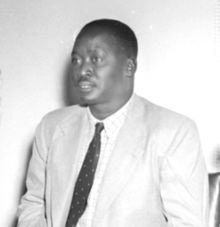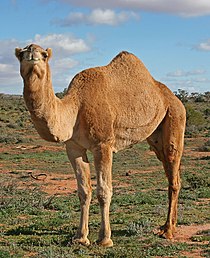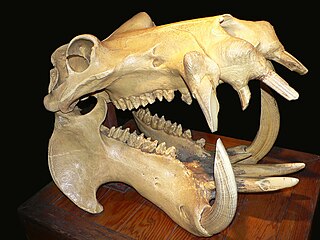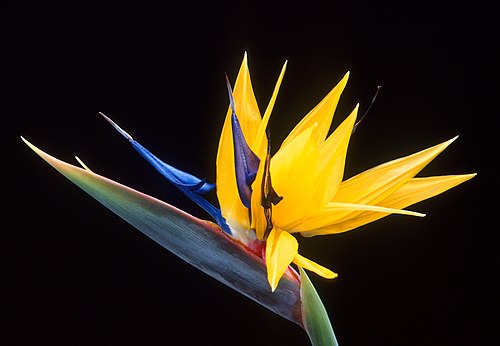


Africa is the world's second-largest and second-most populous continent after Asia. At about 30.3 million km2 (11.7 million square miles) including adjacent islands, it covers 20% of Earth's land area and 6% of its total surface area. With 1.4 billion people0 as of 2021, it accounts for about 18% of the world's human population. Africa's population is the youngest amongst all the continents; the median age in 2012 was 19.7, when the worldwide median age was 30.4. Despite a wide range of natural resources, Africa is the least wealthy continent per capita and second-least wealthy by total wealth, ahead of Oceania. Scholars have attributed this to different factors including geography, climate, corruption, colonialism, the Cold War, and neocolonialism. Despite this low concentration of wealth, recent economic expansion and the large and young population make Africa an important economic market in the broader global context. Africa has a large quantity of natural resources and food resources, including diamonds, sugar, salt, gold, iron, cobalt, uranium, copper, bauxite, silver, petroleum, natural gas and cocoa beans, and tropical fruit.
Africa straddles the equator and the prime meridian. It is the only continent to stretch from the northern temperate to the southern temperate zones. The majority of the continent and its countries are in the Northern Hemisphere, with a substantial portion and a number of countries in the Southern Hemisphere. Most of the continent lies in the tropics, except for a large part of Western Sahara, Algeria, Libya and Egypt, the northern tip of Mauritania, and the entire territories of Morocco, Ceuta, Melilla, and Tunisia which in turn are located above the tropic of Cancer, in the northern temperate zone. In the other extreme of the continent, southern Namibia, southern Botswana, great parts of South Africa, the entire territories of Lesotho and Eswatini and the southern tips of Mozambique and Madagascar are located below the tropic of Capricorn, in the southern temperate zone.
Africa is highly biodiverse; it is the continent with the largest number of megafauna species, as it was least affected by the extinction of the Pleistocene megafauna. However, Africa also is heavily affected by a wide range of environmental issues, including desertification, deforestation, water scarcity, and pollution. These entrenched environmental concerns are expected to worsen as climate change impacts Africa. The UN Intergovernmental Panel on Climate Change has identified Africa as the continent most vulnerable to climate change.
The history of Africa is long, complex, and varied, and has often been under-appreciated by the global historical community. Africa, particularly Eastern Africa, is widely accepted to be the place of origin of humans and the Hominidae clade, also known as the great apes. The earliest hominids and their ancestors have been dated to around 7 million years ago, including Sahelanthropus, Australopithecus africanus, A. afarensis, Homo erectus, H. habilis and H. ergaster, the earliest Homo sapiens (modern human) remains, found in Ethiopia, South Africa, and Morocco, date to circa 233,000, 259,000, and 300,000 years ago, respectively, and Homo sapiens is believed to have originated in Africa around 350,000–260,000 years ago. Africa is also considered by anthropologists to be the most genetically diverse continent as a result of being the longest inhabited. (Full article...)
Selected article –
The Igbo people (English: /ˈiːboʊ/ EE-boh, US also /ˈɪɡboʊ/ IG-boh; also spelled Ibo and historically also Iboe, Ebo, Eboe, Eboans, Heebo; natively Ṇ́dị́ Ìgbò) are an ethnic group in Nigeria. They are primarily found in Abia, Anambra, Ebonyi, Enugu, and Imo States. Ethnic Igbo populations are found in Cameroon, Gabon, and Equatorial Guinea, as migrants as well as outside Africa. There has been much speculation about the origins of the Igbo people, which are largely unknown. The Igbo people are one of the largest ethnic groups in Africa.
The Igbo language is part of the Niger-Congo language family. Its regional dialects are somewhat mutually intelligible amidst the larger "Igboid" cluster.
The Igbo homeland straddles the lower Niger River, east and south of the Edoid and Idomoid groups, and west of the Ibibioid (Cross River) cluster. (Full article...)Featured pictures –
Did you know (auto-generated) -

- ... that land for a library built for African Americans in Virginia was donated by Pope Pius XII?
- ... that the Octavius V. Catto Memorial, unveiled in 2017, contains the first statue on Philadelphia public property of a specific African American?
- ... that makwerekwere is the South African equivalent of "barbarians", an offensive and derogatory slur used to refer to foreigners?
- ... that after failing to establish a colony for black Americans at Abeokuta, Robert Campbell founded the first newspaper in Lagos?
- ... that desert kites in the Middle East and North Africa were used as traps for wild game?
- ... that former Arizona Cardinals kicker Cedric Oglesby, one of the first African-American kickers in NFL history, received his chance to play when the team's previous kicker injured himself celebrating?
Categories
Selected biography –

Jaramogi Ajuma Oginga Odinga (October 1911 – 20 January 1994) was a Kenyan politician who became a prominent figure in Kenya's struggle for independence. He served as Kenya's first vice-president, and thereafter as opposition leader. Odinga's son Raila Odinga is a former prime minister, and another son, Oburu Odinga, is a former assistant minister in the Ministry of Finance.
Jaramogi is credited for the phrase "Not Yet Uhuru" which is the title of his autobiography published in 1967. "Uhuru" means freedom in Swahili and he was referencing his belief that even after independence from British colonialism, the brutal oppression of opposition in political affairs in Kenya, meant that the country had still not attained real freedom. For example, Jaramogi's son Raila Odinga also spent eight years in detention, although he later served as prime minister. (Full article...)Selected country –
 |
 |
|

| ||
Equatorial Guinea, officially the Republic of Equatorial Guinea, is a country in Central Africa. One of the smallest countries in continental Africa, Equatorial Guinea comprises a mainland territory known as Río Muni (including several offshore islands), the island of Bioko (formerly Fernando Pó), where the capital Malabo (formerly Santa Isabel) is located, and the island of Annobón in the South Atlantic Ocean. It is bordered by Cameroon on the north, Gabon on the south and east, and the Gulf of Guinea on the west, where the island nation of São Tomé and Príncipe is located.
Formerly the Spanish colony of Spanish Guinea, its post-independence name is suggestive of its location near both the equator and the Gulf of Guinea. It is the only country in mainland Africa where Spanish is an official language, excluding the Spanish exclaves of Ceuta and Melilla, and the UN-recognised but Moroccan-occupied Sahrawi Arab Democratic Republic (Western Sahara). The discovery of sizeable petroleum reserves in recent years is altering the economic and political status of the country. (Read more...)
Selected city –
Benghazi (/bɛnˈɡɑːzi/) (lit. Son of [the] Ghazi) is the second-most-populous city in Libya as well as the largest city in Cyrenaica, with an estimated population of 1,207,250 in 2020. Located on the Gulf of Sidra in the Mediterranean, Benghazi is also a major seaport.
A Greek colony named Euesperides had existed in the area from around 525 BC. In the 3rd century BC, it was relocated and refounded as the Ptolemaic city of Berenice. Berenice prospered under the Romans, and after the 3rd century AD it superseded Cyrene and Barca as the centre of Cyrenaica. The city went into decline during the Byzantine period and had already been reduced to a small town before its conquest by the Arabs. After around four centuries of peaceful Ottoman rule, in 1911, Italy captured Benghazi and the rest of Tripolitania from the Ottoman Empire. Under Italian rule, Benghazi witnessed a period of extensive development and modernization, particularly in the second half of the 1930s under the Italian Libya colony. The city changed hands several times during World War II and was heavily damaged in the process. After the war Benghazi was rebuilt and became the co-capital of the newly independent Kingdom of Libya. Following the 1969 coup d'état by Muammar Gaddafi, Benghazi lost its capital status and all government offices relocated to Tripoli. (Full article...)In the news
- 12 February 2024 –
- Two boats collide on the Congo River near Kinshasa, Democratic Republic of the Congo; with the death toll remains unclear. (AP)
- 11 February 2024 – 2023 Africa Cup of Nations
- In association football, hosts Ivory Coast win their third Africa Cup of Nations by defeating Nigeria 2–1 in the final. Sébastien Haller scores the winning goal in the 81st minute. (The Guardian)
- 10 February 2024 – Somali civil war
- Four Emirati soldiers and a Bahraini military officer are killed, while ten other people are injured, when a soldier opens fire at a military base in Mogadishu, Somalia, before being killed in the ensuing shootout. Al-Shabaab claims responsibility. (AP)
- 10 February 2024 –
- A Eurocopter EC130 helicopter crashes near Nipton, California, United States, killing all the six people on board, including Nigerian banker Herbert Wigwe. (CBS News)
- 10 February 2024 – 2023–2024 Senegalese protests
- Violent protests occur in Senegal following an announcement by President Macky Sall that presidential elections have been delayed from February 25 to December 15. (Sky News)
- 9 February 2024 –
- At least 18 people are killed during a collision between a bus and a truck on a road in Kinshasa, Democratic Republic of the Congo. (AP)
Updated: 16:33, 14 February 2024
General images -
Africa topics
More did you know –
- ...that members of the Senegalese rap group Daara J were hired by campaigners in the Senegalese election of 2000 to edit their speeches?
- ...that Senegalese hip hop group Positive Black Soul's name abbreviation, PBS, is a play on that of the Parti Démocratique Sénégalais, PDS?
- ...that Mamadou Diabaté, a Malian kora player, was nominated for a Grammy Award in 2005, but lost to his cousin Toumani Diabaté?
- ...that, in November 2007, The Sowetan published an article which erroneously claimed that South African political activist Dan Mokonyane had died?
Related portals
Major Religions in Africa
North Africa
West Africa
Central Africa
East Africa
Southern Africa
Associated Wikimedia
The following Wikimedia Foundation sister projects provide more on this subject:
-
Commons
Free media repository -
Wikibooks
Free textbooks and manuals -
Wikidata
Free knowledge base -
Wikinews
Free-content news -
Wikiquote
Collection of quotations -
Wikisource
Free-content library -
Wikispecies
Directory of species -
Wikiversity
Free learning tools -
Wikivoyage
Free travel guide -
Wiktionary
Dictionary and thesaurus





















































































